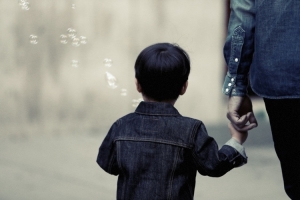Does COVID-19 cause mental health disorders?
Last week a dear friend of mine died of cancer. I have been grieving daily.

Is my grief a disease like my friends cancer? It may seem like an odd question. But in the world of psychiatry any disturbance of thought is a brain issue, no different than any other medical condition. If ones mood is disturbed it is labeled a mental disorder.
The website for the American Psychiatric Association (APA) states that “mental illness is nothing to be ashamed of. It is a medical problem, just like heart disease or diabetes.”
If we are only our brains I would agree with the American Psychiatric Association. It would mean that all disease, including COVID, causes mental disorders no different than heart disease or diabetes.
As a Christian I disagree with the APA. We are more than our brains and emotional problems are not a medical disease. Biology might impact our emotions but it doesn’t control them like insulin controls blood glucose.
We are created in God’s spiritual image. Our thoughts and emotions can be disturbed by biological disease and death, but it cannot cause and control it. My friends death didn’t create a biological disease called grief.
COVID might cause the loss of your job, but it can’t control how you think about that loss. A virus can isolate you socially but not overpower freewill, make you drink or beat your wife. COVID can take the life of someone you love but can’t alter your neurons to form your beliefs about death and eternal life. You are still in charge of what you believe and how you act.
All of this doesn’t make COVID less challenging.
To the contrary, COVID has caused an increase in deaths, severed interpersonal relationships, created economic chaos and triggered unprecedented fears. It threatens not only the body and brain but can shake us to the core, affecting both soul and spirit. It triggers anxiety and depression because it challenges our personal ideologies and convictions. It cuts and peels away the joys of life, revealing the resiliency of one’s values, beliefs and character.
Picture the layers of an onion, peeled away by each challenge and threat of COVID. Each layer peels back the core of what you believe and cherish. Every layer reveals something different for each person. Something I have observed as a psychologist during the past nine months of COVID.
Recently one of my patients grieved for his son who lost his senior year of high school football because of the COVID shutdown. “Football is my son’s life and I am afraid of how it will affect him mentally.” Loosing football peeled back a layer of life exposing the son to his personal beliefs about significance and purpose. Was football truly “his life”? Was it the core of the onion? If so, life might not be worth living. He may be too depressed to continue.
I have observed this onion affect in my work since COVID began. Some patients are devastated, others are doing reasonably well. All are saddened, frustrated and struggling with the turmoil COVID has caused, but not all are suicidal, relapsing on drugs, beating their children, abandoning their marriages or giving up on life. Everyone is peeling back the onion, but not all are falling apart.
Why?
In my profession you will hear different theories: genetics, learned behavior, early childhood trauma, personality variables, parenting and economics. The assumption being that any of those deficits will make you more vulnerable and possibly incapable of overcoming challenges. Your deficits put you at a disadvantage and you are more susceptible to defeat.
I do agree that some individuals are more psychologically vulnerable than others, but aren’t all of us broken and vulnerable at some point? If you peel off enough of the onion all of us are left with the fragility of life and reality of death. The loss of temporal things show their fleeting value, leaving only the deeper questions of life.
If the temporal life satisfied consistently and without uncertainty who would abandon it? If life on earth was an imperishable delight and flawless experience, why would we change it? But because life is shaken, broken and unpredictable we look for eternal answers.
As CS Lewis wrote in his book The Problem of Pain: “God whispers to us in our pleasures, speaks in our conscience, but shouts in our pain: it is His megaphone to rouse a deaf world.”
It is the peeling of the onion and exposure of our vulnerabilities that turn our eyes towards Christ. Our weaknesses are not a defeat for the love of God, but a path to the gentle hand of Jesus.
It is the central message of Jesus, “Come all you who are heavy burdened and I will give you rest” (Matthew 11:28). Jesus acknowledges our wounds, frailties and deficits. As we peel back the layers of life’s sorrows and death the promise of Christ shines at the core.
What will the peeling of the onion say about us Christians? Will we lose our children because football was their life? Will we be angry at God if COVID takes a loved one? Will the cross of Christ be enough if we lose our jobs, 401K and retirement?
I am not suggesting the trials won’t shake us to the bone. To the contrary, I think our current circumstances have the potential for creating what we read about Job and his experience. Job lost his children, wealth, home and his health. Each trial peeled back the joys of life and tested his beliefs about God. At a low point he cried out, “I was at ease, but He shattered me, And He has grasped me by the neck and shaken me to pieces.“(Job 16:12).
COVID has shaken us. But unlike Job we know Christ. We know Jesus died on the cross and shared in our suffering. God’s love wraps us in His grace and protects us from all evil, regardless of how much Satan peels back the onion.
“Who will separate us from the love of Christ? Will tribulation, or distress, or persecution, or famine, or nakedness, or peril or sword? But in all these thing we overwhelmingly conquer though Him who loved us. For I am convinced that neither death, nor life, nor angels, nor principalities, nor things present, nor things to come, nor powers, nor height, nor depth, nor any other created thing will be able to separate use from the love of God, which is in Christ Jesus our Lord” (Romans 8: 35, 37-39).
Dr. David Zuccolotto is a former pastor and clinical psychologist. For 35 years he has worked for hospitals, addiction treatment centers, outpatient clinics and private practice. He is the author of The Love of God: A 70 Day Journey of Forgiveness.




























